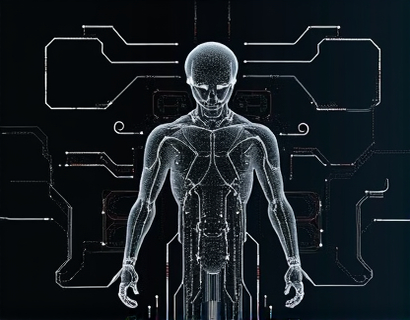AI Accreditation Innovations: Transforming Skill Validation and Career Advancement in the Digital Age
The digital age has ushered in a new era of rapid technological advancement, particularly in the field of artificial intelligence (AI). As AI continues to permeate various industries, the demand for skilled professionals who can navigate and contribute to this evolving landscape has surged. Traditional methods of validating skills and knowledge, such as degrees and general certifications, are being supplemented by more specialized and dynamic approaches. One such innovation is the emergence of AI accreditation platforms that offer tailored credentials to validate skills and knowledge through completed tasks and educational milestones. These platforms are revolutionizing how individuals and organizations assess and enhance professional credibility and job prospects in the tech industry.
The need for such accreditation systems arises from the complexity and specialization of AI-related skills. Unlike conventional certifications that may not fully capture the nuances of AI expertise, these new platforms provide a more granular and task-specific validation. This approach ensures that professionals can demonstrate their proficiency in specific areas of AI, such as machine learning, natural language processing, or data science. By breaking down the broader field of AI into smaller, manageable components, these platforms enable individuals to build a portfolio of credentials that reflect their unique skill set and career trajectory.
One of the key benefits of these AI accreditation platforms is their ability to offer specialized credentials that are directly tied to completed tasks and educational achievements. This method of validation is more aligned with the practical, project-based nature of AI work. Traditional academic degrees often take years to complete and may not always reflect the most current and relevant skills in a rapidly changing field. In contrast, AI accreditation platforms allow professionals to continuously update their credentials as they acquire new knowledge and skills, ensuring that their qualifications remain up-to-date and relevant.
These platforms typically operate by providing a series of modules or tasks that cover various aspects of AI. Each module is designed to assess a specific skill or piece of knowledge, and upon successful completion, learners receive a corresponding credential. These credentials can be displayed on professional profiles, resumes, and LinkedIn profiles, serving as tangible proof of one's expertise. The modular nature of these credentials also allows for a more flexible and personalized learning path, enabling individuals to focus on areas that align with their career goals and interests.
The process of earning these credentials is often more interactive and hands-on compared to traditional learning methods. Learners engage with real-world projects, case studies, and practical exercises that simulate actual AI work environments. This experiential learning approach not only enhances understanding but also builds practical skills that are highly valued by employers. The immediate feedback and assessment provided by these platforms help learners identify their strengths and areas for improvement, fostering a continuous learning mindset.
Moreover, these AI accreditation platforms are designed to cater to a diverse audience, including tech professionals, students, and even those transitioning into the tech industry. For tech professionals, these credentials serve as a means to stay current with the latest AI trends and technologies, thereby maintaining a competitive edge in the job market. For students, they offer an opportunity to gain industry-recognized skills while still in academia, making them more attractive to potential employers upon graduation. For career changers, these platforms provide a structured way to acquire new skills and validate their learning, reducing the risk and investment associated with pursuing a full degree program.
The impact of these accreditation platforms extends beyond individual career advancement. Organizations and industries benefit from a more skilled and certified workforce. Employers can trust that candidates with these credentials possess the necessary skills to contribute effectively to AI projects and initiatives. This trust can lead to more efficient hiring processes and higher job satisfaction, as employees feel confident in their qualifications and are better equipped to perform their roles. Additionally, the standardized nature of these credentials facilitates skill comparison across different candidates and organizations, promoting a more meritocratic and transparent job market.
Another significant advantage of AI accreditation platforms is their role in democratizing access to high-quality education and training. Traditional educational institutions may have limited resources or may not offer specialized AI courses, especially in regions with fewer technological infrastructures. Online accreditation platforms bridge this gap by providing accessible, affordable, and high-quality training modules that can be completed at the learner's own pace. This democratization of education ensures that talent from various backgrounds has the opportunity to develop valuable AI skills, contributing to a more inclusive and diverse tech industry.
The technology behind these accreditation platforms is equally innovative. Utilizing advanced AI algorithms, these platforms can adapt to the learner's progress and provide personalized learning experiences. Adaptive learning technologies assess the learner's performance and adjust the difficulty and content of the modules accordingly. This ensures that learners are consistently challenged and engaged, optimizing the learning process. Furthermore, blockchain technology can be employed to secure and verify the authenticity of these credentials, providing an additional layer of trust and reliability.
To illustrate the transformative potential of AI accreditation, consider the journey of a mid-career professional looking to transition into a role focused on machine learning. Traditional methods might require this individual to enroll in a full master's program, which could take two years or more to complete. With an AI accreditation platform, the same professional can complete relevant machine learning modules in a fraction of the time, earning credentials that are immediately recognized by employers. This not only accelerates their career progression but also minimizes the financial and time investment associated with traditional education.
Furthermore, these platforms often collaborate with industry leaders and organizations to ensure that their content is aligned with current industry needs and trends. This partnership ensures that the skills being validated are not only theoretically sound but also practically applicable. Employers can have confidence that candidates with these credentials have been trained using industry-standard methodologies and tools, making the transition from education to employment smoother and more effective.
The future of AI accreditation holds even more promise. As AI technology continues to evolve, these platforms will likely incorporate more advanced features such as virtual and augmented reality simulations, interactive coding environments, and real-time collaboration tools. These enhancements will further enrich the learning experience and prepare professionals for the complex and dynamic nature of AI work. Additionally, the integration of AI in the accreditation process itself could lead to even more efficient and accurate assessment of skills, reducing the burden on both learners and employers.
In conclusion, AI accreditation platforms are at the forefront of a significant shift in how skills are validated and careers are advanced in the digital age. By offering specialized, task-based credentials, these platforms provide a more accurate and flexible way to demonstrate expertise in AI. They empower individuals to continuously update their skills, attract better job opportunities, and contribute more effectively to their organizations. As the tech industry continues to grow and evolve, the role of these accreditation platforms will become increasingly vital in shaping a skilled and adaptable workforce.










































